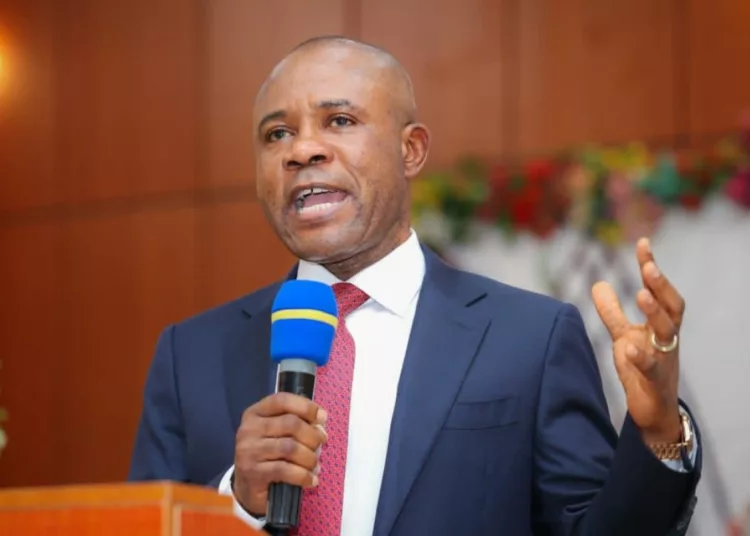Following the ongoing negative impact of climate change and the threats it poses on human existence and the ecosystem, the Enugu state government has joined a dedicated community of climate activists in calling for urgent steps to mitigate the climate crisis through the reduction of carbon footprints.
This was as the government also presented its state’s climate policy, action plan and financial framework to enable the transition to a greener economy, describing the move as “an opportunity to reinvent ourselves, to innovate, and to lead in the face of global change.”
The government explained that the decision to take the drastic step was aimed at gradually transitioning from a coal city to a pioneer in clean energy solutions. It set ambitious targets for renewable energy generation in the face of greenhouse emissions that continue to threaten humanity and the environment.
While assuring that plans were on top gear to place the state on the map of global climate activism, said the objective of reducing carbon footprint and other forms of pollution to its barest minimum would be achieved by harnessing the power of wind, solar, and other renewable energy sources.
Speaking on the state’s vision for a “Climate Resilient and Green Economy” during a workshop and stakeholder consultation for the Draft of Enugu State Climate Policy Action Plan and Climate Finance Framework held on Thursday, in Enugu, the Secretary to the State Government, Prof Chidiebere Onyia said the workshop was one of the series of engagements by the government towards a sustainable future for Enugu state and humanity.
“The State Climate Policy will outline our vision for a climate-resilient and green economy, and our Climate Action Plan will guide our actions today and in the years to come. It will be a shared objective based on our local context, but also looking ahead to the opportunities presented by the global transition,” he said.
On the potential of Enugu state, Onyia said, “Our state has a rich history, deeply intertwined with coal production and the energy sector. For decades, our communities thrived on this industry’s economic benefits. However, as we stand at a crossroads, we must acknowledge the pressing challenges posed by climate change and the critical need to transition to a greener economy. This transition is more than an obligation; it is an opportunity to reinvent ourselves, innovate, and lead in the face of global change.”
He underscored that the draft policy’s principles are based on three key pillars: sustainability, inclusivity, and innovation. He added that sustainability will be at the heart of the climate policy.
“We are committed to reducing our carbon footprint and strengthening our ecosystems. This includes investing in renewable energy sources, promoting energy efficiency, clean transportation, climate-smart agriculture and adopting circular economy principles that minimises waste and maximises resource use.
“We must recognise that the transition to a sustainable future must leave no one behind. This is especially important in a state with a legacy tied to coal, which has benefited and harmed several communities.
“We must support communities and workers in this sector through this transition by investing in training and reskilling programmed, ensuring that everyone has a role in the green economy,” he noted.
In his welcome address, the commissioner for environment and climate change, Prof. Sam Ugwu, observed that climate change has become a global challenge with its consequential impacts on livelihoods and ecosystems distorting national and subnational socio-economic values and activities, saying the reality of climate change was no longer a distant threat; but a pressing challenge that demands immediate and concerted action by all stakeholders.
“In the face of these challenges, it is our responsibility to act decisively and collaboratively to mitigate these impacts and adapt to the changes that are already upon us,” he said.
On his part, Prof Chukwumerije Okereke, Senior Adviser to the Governor and President of the Society on Climate Policy and Sustainable Development, said the symposium was for the development of Enugu state climate change policy and action that would drive the mitigation steps deliberately initiated by the Mbah administration.











